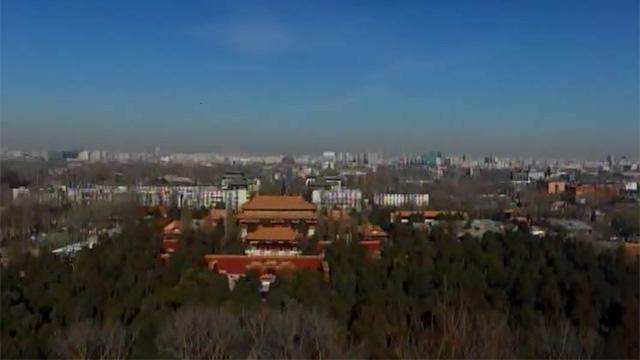One year ago, Beijing was shrouded in thick smog. China's economy had quickly expanded, causing road traffic to surge as the country grew into the world's top car market. Steel mills and power plants belched pollutants with their heavy use of coal.
Airborne toxins exceeded safety standards. At times, authorities had no choice but to urge citizens to refrain from going outdoors. But things appear to have changed.
One person there notes that the weather is fine this year, with less frequent smog. Another says she used to tell children to stay home, but can now let them play freely under the sun. She says it is a welcome change.
How did Beijing regain its blue skies?
A call to action by the country's top leader seems to have been the catalyst for change. President Xi Jinping has said China will definitely win the battle to protect its blue skies. Under Xi's orders, China embarked on a bold anti-pollution campaign. It is aggressively introducing wind, solar and other renewable energy sources as it tries to shift from fossil fuels.
The country is also focusing on promoting electric vehicles. Authorities in major cities are regulating gasoline-powered vehicles while pushing for the installment of battery charging stations.
Electric vehicle buyers are offered subsidies worth around a million yen. Sales of EVs reached 650-thousand units last year, an amount that is said to be more than anywhere else in the world.
One buyer says everyone is rushing to purchase an electric car. Another speculates that EVs could become as widespread as mobile phones.
Authorities are also shutting down old coal-powered factories. They are conducting inspections, and breaches of pollution standards are no longer overlooked. Factory managers have been ordered to abide by the rules.
In Hebei Province neighboring Beijing, 70-thousand factories are said to have been shuttered last year.
Beijing authorities claim the density of especially harmful PM 2-point-5 particles in the air has dropped by about 35 percent over the past 5 years.
Changes cause confusion
A campaign to move away from coal is also underway in rural communities. A banner in one community reads: "The burning of coal is banned, offenders will be fined and whistleblowers will be rewarded."
Cheap coal has been a source of heating in rural areas. Low grade coal is widely used, emitting large amounts of pollutants. The Chinese government is now trying to crack down on it.
But the move has not been without problems. Footage of a school posted on Weibo, the Chinese version of Twitter, appears to show students having a class on a playground instead of in a classroom.
One student says staying outside is warmer than being in the classroom. Authorities have prohibited the school from using coal-burning heaters, despite the fact that it still has not received newer heating equipment.
An NHK crew went to the village where the school is located to investigate the situation. But the crew was under surveillance for about an hour, followed by officials in a car. Eventually they interfered with the reporters, leaving the NHK crew no choice but to halt their research for the day.
The crew later visited the village again, and found that residents fear their lives are at risk due to the ban on coal-burning heaters.
One of the women now has a natural-gas heater instead of a coal-burning one. But the natural gas supply is unstable and expensive, making it difficult to keep her room warm. She said her 85-year-old mother needs to stay in bed to withstand the frigid temperatures.
The woman said her ailing mother does not look well, and called the situation unacceptable.
China's attempts to bring back blue skies are being rushed forward, bringing both rewards and risks.
